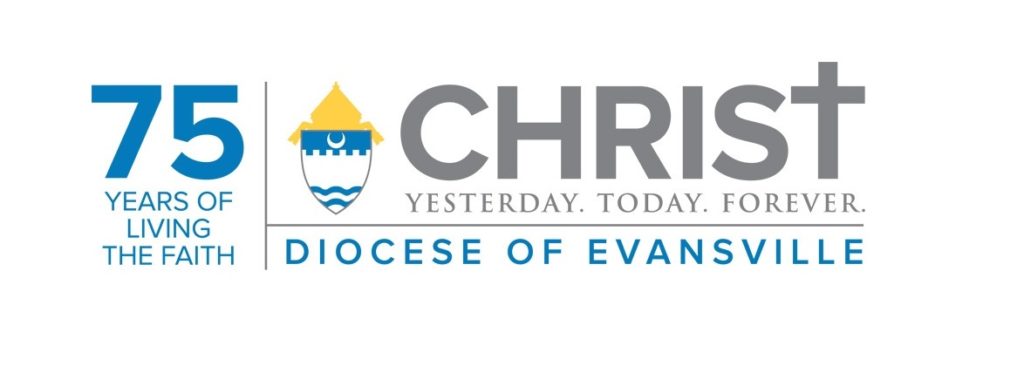By Matt Miller
Diocese of Evansville Director of Worship
Special to The Message
How is the Church liturgically different from 1944 when our diocese was elevated?
As the theme for the diocesan anniversary reminds us, some things, like Christ, remain constant in the Church – yesterday, today and forever. However, the way the Catholics of the diocese celebrated and lived that faith in 1944 would have looked somewhat different than it does today.
The most obvious example of this would relate to the celebration of the Mass. Those first Masses celebrated in the diocese would have used Latin, with the priest and the people all facing the same direction. There may have been some singing in English at low Masses and at other devotional celebrations such as Benediction, but the only instrument aside from the human voice you would have heard was the organ.
In 1944, one who wished to receive Holy Communion would have to fast starting at midnight. It was not until 1953 and then again in 1957 that the rules governing the Eucharistic fast were changed to only three hours before reception, as well as the change that water did not break the fast. This makes the current rule of a one hour fast seem almost too easy by comparison.
And in terms of seasonal fasts, the demands were much greater as well. One would have fasted and abstained from meat every Friday in Lent, and fasted every day of Lent but Sundays. Friday abstinence all year long was the norm until 1966. While still penitential days, the mandate to abstain was lifted.
If you were to stop into a church on a Saturday afternoon, you probably would have found a line of faithful waiting to go to Confession, but you would not have found a Mass to fulfill your Sunday obligation. It would not be until the mid-1960s that permissions for these Saturday anticipatory Masses would become widespread, at first in response to a legitimate need in places where work made Sunday attendance nearly impossible and then, later on, more broadly used. Even the greatest vigil of the liturgical year, the Easter Vigil, would have been celebrated on Holy Saturday morning.
This is a very brief snapshot, and much more could be said. But what remains constant through it all is Christ and the Church he founded, calling us all to participate in His saving work now until he comes in glory. In all things may God be glorified!

